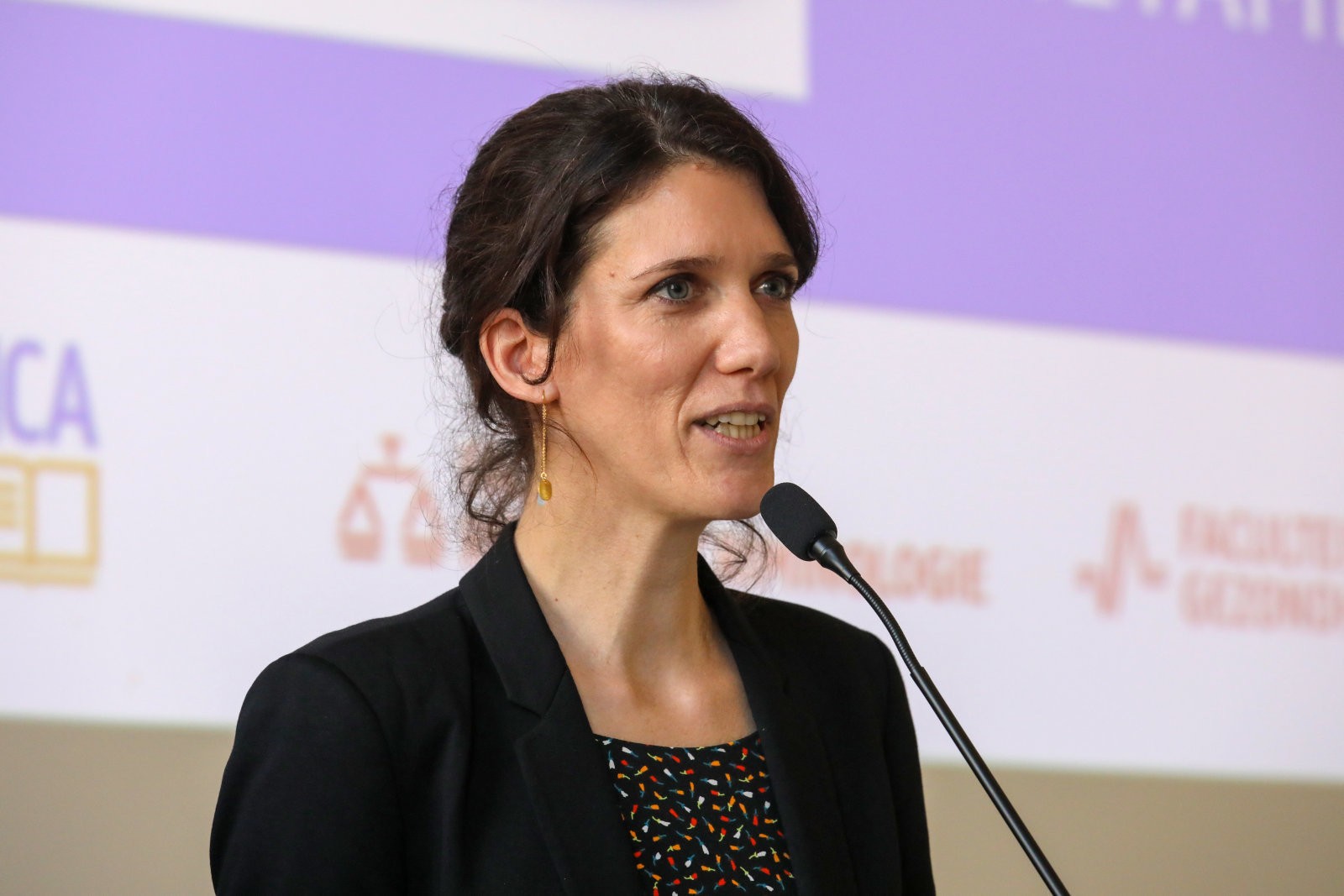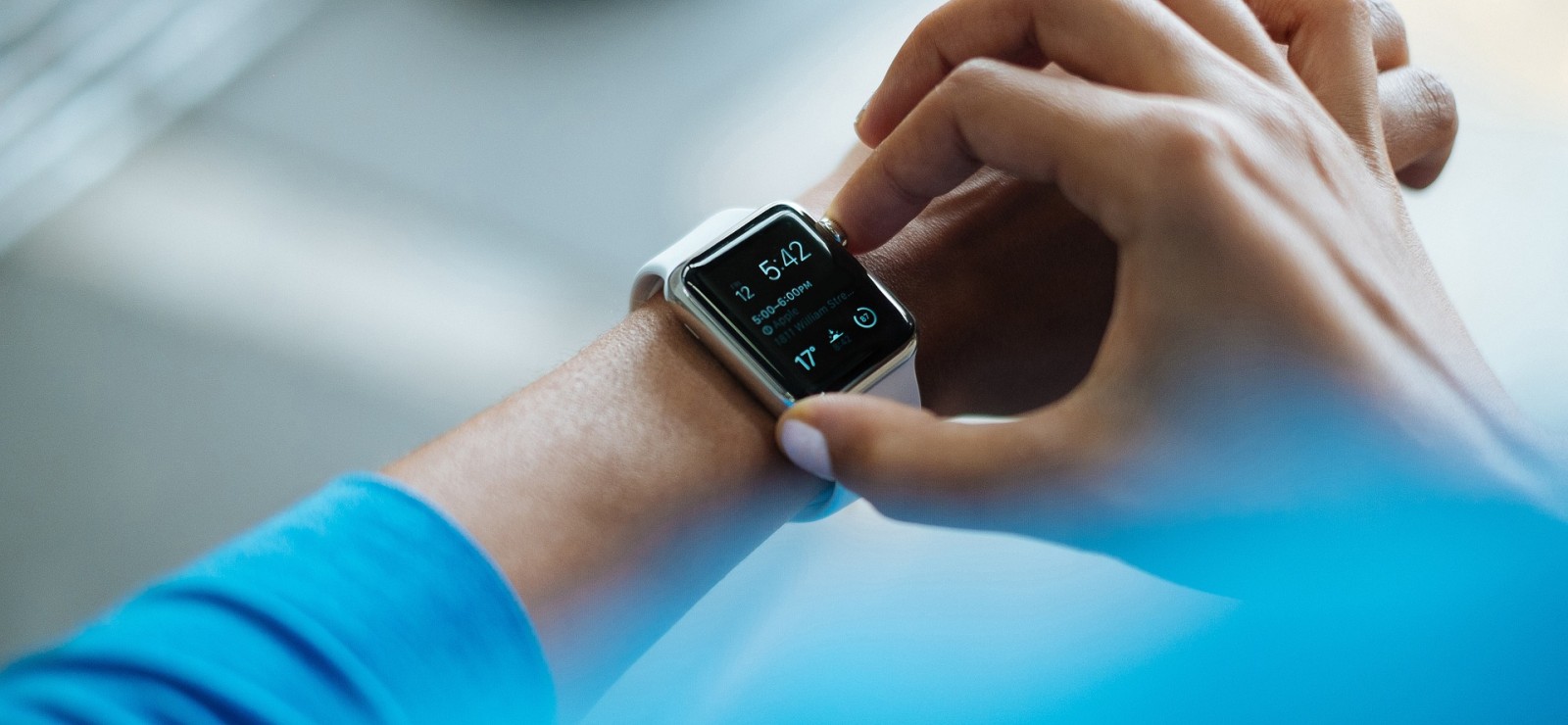Would you be able to trust the diagnosis of an app in the same way as a doctor’s? What happens with your personal data? A research team led by Heidi Mertes, lecturer in medical ethics, will be examining in the coming years the ethical concerns raised by these questions.
Your smartwatch can keep an eye on your heart rate, among other things. And with the right app you can check whether a spot on your skin is merely a harmless birthmark or a sign of skin cancer. Useful! “You can download an app in just a few seconds, while a visit to the dermatologist takes some effort and you might just delay it indefinitely,” explains Heidi Mertes. “But an app doesn’t give you the same professional advice as a dermatologist.”
Technological innovations in healthcare are making a huge impact. The European Commission has awarded Heidi Mertes a prestigious ERC Starting Grant. With this grant she’s assembling a research team with which she hopes to conduct some ground-breaking research at Ghent University over the next five years.
From which observations does your research project start?
Heidi Mertes: “Not just in healthcare, but in any market, innovation is designed to make a product or service even better. We want better products and better care than we already have. For example, precision oncology has been developed offering a very targeted approach to cancer. We’re also seeing recent innovations emerge that don’t necessarily make care better, but are still attractive. In the start-up phase, those care products reach more people, but the quality is less good. Just think of the skin cancer app. And yet they do have the potential to grow into higher quality healthcare.”
What are the dangers?
Heidi Mertes: “The tools and apps are mainly developed in the IT and private sector and less often by the medical world. If we all start using them en masse and draw our own conclusions, there are sometimes more disadvantages than advantages. You may conclude for yourself that there is nothing wrong while that may not be the case. It’s a bit like Doctor Google whereby you google your symptoms and draw your own conclusions. Guidance is therefore very important. We want to investigate to what extent the concepts that exist in medical ethics now are sufficiently robust to examine these ethical dilemmas.”

Why would they be insufficiently robust?
Heidi Mertes: “If you have, for example, a DNA analysis at a Medical Genetics Center, you will be properly informed about the advantages and shortcomings of the test, and will receive a guarantee that your medical data will be treated confidentially. Whether you have understood everything will be checked, and only then are you able to give your consent. If you order it online from a commercial company, a disclaimer with information will appear somewhere. Many people just click “I agree” without actually reading what it says.
No one is there to explain to you what the results mean and who can access them. In theory, people have given their consent, but you may question whether this is an informed consent. You could certainly argue that it may be less important here because it is not a medical transaction, but a purely commercial transaction.”
How can you guarantee the same standards you would expect in regular healthcare?
Heidi Mertes: “Maybe we should rethink the concept of informed consent. Is it there because it is important that people understand everything down to the last detail? Because we want to protect them from abuse? What exactly is the underlying intention? And are there other mechanisms that we can use to achieve this?”
What might that look like in practice?
Heidi Mertes: “You could give the patient insights into what the company might do with the information and give him or her the opportunity to intervene if he/she does not like it. Or impose some necessary restrictions. In other words, a company may not just do anything they like when the patient has clicked ‘I agree’.”
What can happen to the data we share?
Heidi Mertes: “They are also sent to the developer of the app to improve the algorithm. You are actually part of an on-going research without even realizing it. Among other things, we will investigate how the boundary between the patients’ goal and research goal changes.”
What are you going to research?
Heidi Mertes: “The shifts in responsibilities, such as that from doctor to patient. For a young person it might be easy to put your body temperature into the app, for an elderly woman of 90, that’s going to much less obvious. Another shift is that from the medical personnel to the companies that process the data. Suppose an app shows that I need urgent medical care, would a data processor then offer to help me? Or does he/she not have that obligation? We expect that from our doctor, but can we expect the same from those companies?”
Do you have a smartwatch yourself?
Heidi Mertes: “No, though I do have a smartphone, but it does not contain any health monitoring apps. I don’t even have a pedometer, but I do know whether I’ve sat on my chair all day or walked enough.” (laughs)
Read also
This is how to avoid parasites on holiday
Holidays! You're already looking forward to all the delicious things you'll eat while travelling, but wait ... Can you just eat anything? "There are some foods that you need to be a bit careful with.” Professor Sarah Gabriel tells us how to avoid taking an extra passenger back home
Revolution in plastic surgery: human tissue rolls out of printer
Creating new pieces of bone, muscle, skin or fat with a 3D printer to heal injuries. Sounds futuristic? The first steps are already being taken today! We spoke with plastic surgeon and professor Phillip Blondeel about his research into tissue engineering.
Most skin cancers can be prevented: protect yourself from UV with these 4 tips
Sunshine and holidays equal a tanned skin for many. But we need to adjust our ideas about tanning, according to dermatologists Lieve Brochez and Isabelle Hoorens. Our behavior towards the sun and UV will cause more and more cases of skin cancer in the coming years.
Is a stool transplant a potential treatment for Parkinson’s?
A recent study into Parkinson’s disease has shown that a stool transplant may constitute a new and valuable treatment of the disease. “It offers a potentially safe, effective and cost-efficient way of alleviating the symptoms and improving the quality of life of millions. A 'bacterial pill' might replace the stool transplant in the future. But more research is needed.”



